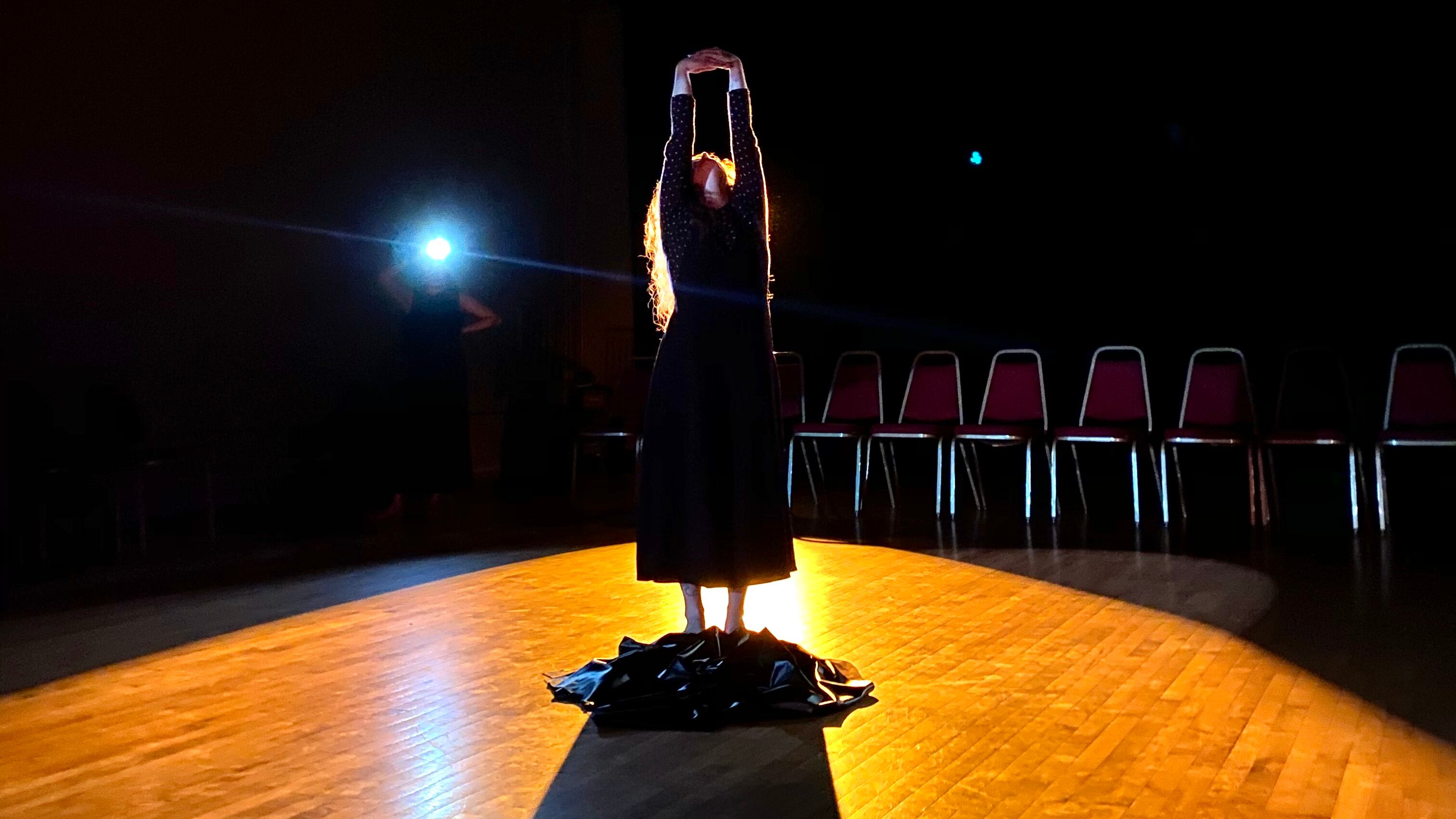I spent the first weekend of Fertile Ground brooding about all of the plays I didn't have time to see, like the Soviet-era musical Tear Down This Wall, and savoring the plays I was lucky enough to experience—all of which have upcoming shows. The annual festival of new works is off to a splendid start and intriguingly, many of its offerings have coalesced around a single theme: The power of family to shatter and rejuvenate the soul.
The first play I saw was The Ways We Cope, an astounding fusion of theater and dance starring Alanna Archibald, Hailey Houser, Kayla Hanson and Myia Johnson as people who each must confront something that terrifies them. The play features everything from a harrowing scene about rape, where a phallic flashlight illuminates a woman's mask-like smile, to a genuinely scary plotline involving a character who is afraid to ask for a replacement drink after a coffee shop botches her order by adding whole milk.
By refusing to dismiss any fear as meaningless, The Ways We Cope, which was directed by Audrey O'Farrell, honors the vulnerabilities of its characters—and the audience. It has been billed as a play about four women and four fears, but the production's visual and emotional reach extends beyond what we see onstage. It's hard to imagine anyone watching and not thinking at some point, "I've felt that too."
Next up was Dearly Departed, starring performer-playwrights Tobin Gollihar and Ian Paul Sieren. From 1948 to 1974, they follow the emotional evolution of Rowan Valentine (Sieren), a closeted gay man who creates children's books with his wife Cherry (Gollihar). Playing a total of 14 characters, the actors create a partly improvised narrative that starts with Rowan, but devotes equal attention to Cherry, who battles alcoholism and ultimately discovers that playwriting and teaching theater is her calling.
Deep End Theatre's Syncopation is another improvised exploration of family life. Its creator and director, Theresa Carmody, built the production around a couple and their two adult children, but allows the actors to riff as much as they choose during each performance. The version I saw follows the family through two tragedies—a cancer scare and a failed pregnancy—but that's just one of many possible trajectories. The beauty of Syncopation is that it allows the actors (Mike Carlip, Ryan Ocp, Kari Smit and Allie Rivenbark) to portray life as a scale that is constantly unbalanced and then rebalanced. One sibling might offer emotional and monetary support when the other faces crushing heartbreak; in time, the roles reverse and the debt of kindness is repaid. It's an almost utopian vision of what a family can be.
The final play I attended was Joshua Metzger's Sitting Shiva, which was directed by Dawn Bonder. It's about three brothers (Dirk Foley, Michael J. Teufel and Doug Dean) who attempt to honor their late father by gathering for the title Jewish ritual, which rapidly becomes a whirlwind of mockery, resentment and accusations—and that's before the cataclysmic revelation that brings the play to a haunting close. It's a memorable meditation on the fragility of tradition and, apparently, it hit close to home. After I saw the play, a woman in the audience asked Metzger, "How did you know what was going on in my family?"
It's no secret that Fertile Ground's wealth of worthy plays makes it both exhilarating and exhausting. Yet the weariness melts away when you see something that wows you, or when an actor, director or playwright sticks around after the final bows to chat about their process. This is a festival where togetherness extends beyond the usual bonds between castmates, which is why it's no wonder that family is a defining theme this year. In the Portland theater scene, few events feel as familial as Fertile Ground.
SEE IT: The Fertile Ground Festival takes place at various venues, fertilegroundpdx.org. Showtimes vary, noon-11 pm Tuesday-Sunday, Feb. 4-9. $70 for a festival pass, individual ticket prices vary.
